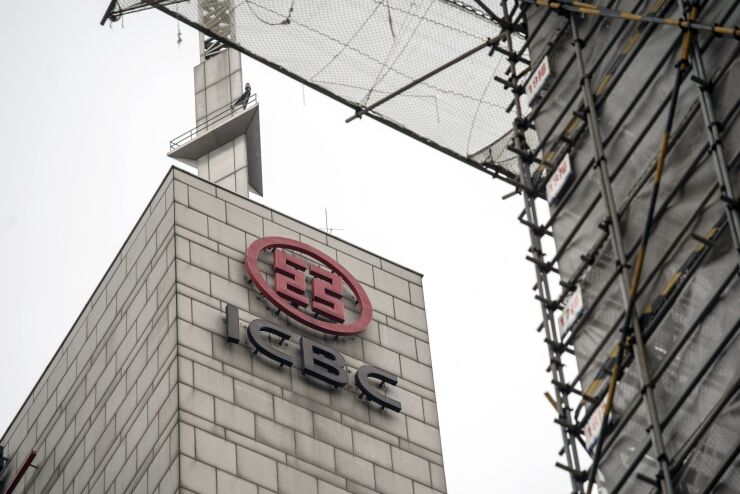A ransomware attack on the U.S. arm of a large Chinese bank caused trade failures in the U.S. Treasury market on Thursday, forcing the market to stay open late so participants could reroute trades.
The attack against the U.S. arm of the Industrial and Commercial Bank of China prevented some U.S. debt brokers from conveying trade contracts. U.S. Treasury repo failures rose to the highest rate since March,
Nonetheless, the attack had limited impact on the market, one executive at a repo broker-dealer
Cybercrime gang Lockbit
ICBC Financial Services confirmed on
"Immediately upon discovering the incident, ICBC FS disconnected and isolated impacted systems to contain the incident," the company's statement reads. "ICBC FS has been conducting a thorough investigation and is progressing its recovery efforts with the support of its professional team of information security experts."
ICBC FS operates independently from ICBC in China, the company said, and neither the head office nor the New York branch of ICBC itself were affected by this week's attack.
China's Ministry of Foreign Affairs affirmed the lender's efforts to minimize impacts after the attack, according to Wang Wenbin, a ministry spokesman.
"ICBC has been closely monitoring the matter and has done its best in emergency response and supervisory communication," Wenbin said at
Lockbit first appeared in January 2020, and as of June, Lockbit had executed more than 1,700 attacks and received approximately $91 million in ransom payments,
The Russian-linked
The hacker group is threatening to publish personal data from multiple U.S. financial institutions and using known vulnerabilities to get into their systems.
The January incursion drew comments from the Futures Industry Association, a trade organization for derivatives markets, and the U.S. Commodity Futures Trading Commission. So far, Treasury spokespeople have only said the department is monitoring the ICBC FS situation.
Some ransomware actors have recently relied more on
While authorities including the FBI advise against paying these criminal groups to get systems decrypted or stolen data deleted, many organizations still do so, often in an attempt to protect the data of customers
Authorities say these ransom payments only incentivize further victimization, and regulators are increasingly scrutinizing payments. Banks and other financial companies regulated by the New York State Department of Financial Services will soon have to report when they make ransom payments and provide an explanation.
In the coming years, the requirement to report ransom payments will apply to all companies in critical infrastructure sectors when CISA implements the







